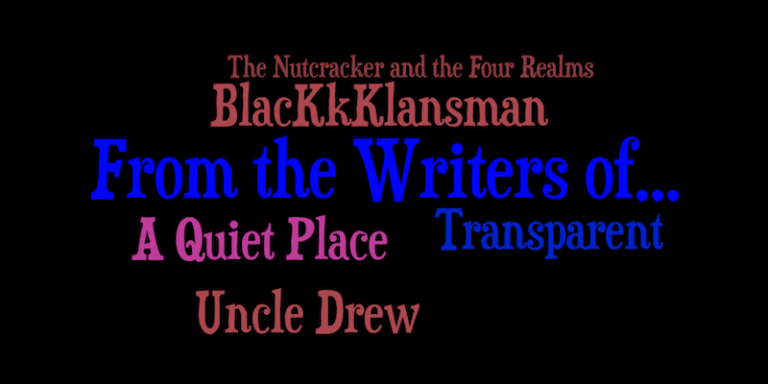By Ken Miyamoto · July 22, 2019

What are the best screenwriting tips from some of today’s most successful screenwriters?
Welcome to our ongoing Learning from the Masters and Industry Insiders series where we seek out and feature excellent videos, interviews, and discussions of the art, craft, and business of screenwriting and pull the best words of wisdom, writing tips, and screenwriting advice.
Here we feature Variety‘s Screenwriting Tips from Hollywood Professionals and pull the best screenwriting tips and offer our own elaboration.
“Never think that you’ve written your masterpiece. You should always be writing. It’s the process of writing that should give you the most joy. Not the having written something.”
It’s very easy to believe that you’ve written your masterpiece. And it’s very easy to focus solely on that script to get it marketed, read, acquired, and produced. It can become obsessive. You have to keep writing scripts.
“Quantity leads to quality. Write as much as possible and show your stuff early and often — and embrace that feedback.”
A common theme already is to keep writing. Beyond that, David makes a good point about the need to share your work and use the feedback you get to become a better writer.
Download the Oscar-winning screenplay for BLACKKKLANSMAN here for free.
“Don’t underestimate concept and taking the time to think about your concept and what the story is that you want to tell before you dive in to actually start writing it. Because if it’s a concept that you’re just writing for yourself because you think it’s fun or that no one else has interest in, chances are it’s going to be a lot harder for you to make this movie.”
Concept is everything, yes. But you have to choose your concepts so wisely. Before you type a single word, you need to know what story within that concept that you want to tell.
“It’s hard to know at the beginning which rules to pay attention to and which rules to break. Reading great screenplays will teach you which rules to break. And reading not so great screenplays will teach you which rules not to break. And once you’ve gotten a barometer for that, I would say be absolutely reckless in the pursuit of your vision.”
Reading scripts and studying movies — the good and the bad — will be your best screenwriting education.
Download the screenplay for WHAT THEY HAD here for free.
“Enjoy the small victories. Working in Hollywood is such a high-pressure job that sometimes you forget to stop and smell the flowers. Enjoy the moments when you finish writing a script, when you get good notes and good feedback, and just try to enjoy the process of it.”
Don’t be in such a rush to succeed and climb the Hollywood ladder. Enjoy every little step of the process or you’ll burn yourself out.
Learn why the script for A QUIET PLACE works so well with this free guide.
“Spill your gut onto the page. And you should be slightly embarrassed by the stuff you’re putting out there. You want your work to be as embrassignly personal as possible.”
Put as much as you into the script as you can. When you do that, you know you’re creating cathartic work that people can relate to.
Download the screenplay for A QUIET PLACE here for free.
“Divorce yourself from your ego… the greatest dragon you have to slay is your own ego. Your own need to be worshipped and celebrated. That’s just not where the best art comes from… attack the blank page with humility.”
Confidence is great. Ego is something no one wants to deal with — and there’s a difference between confidence and ego.
“What you really want to do is just not give up. I first moved to L.A. twenty-some years ago and I’ve been at this a long time. A lot of stops and starts and people telling me it wasn’t going to happen… I just didn’t give up. Walking into a theater and hearing a crowd react to words that you wrote for the very first time, all the heartbreak, all the struggle, is so worth it.”
Your dreams aren’t going to come true overnight. It’ll take you a couple of years or more to really find your voice. Then it may take a long time to write those first few amazing scripts. Then it may take a lot more time to get them read. Most “overnight” successes are a result of a decade or more of work.
“Write your voice. Write how you talk. Write how you think. What’s really inside you. Because if there’s anything that executives are looking for it’s something fresh, something original, and something authentic.”
You have to find your own voice. Don’t try to emulate screenwriters that have come before you. Hollywood doesn’t want to see more of the same, despite how it feels when you look at the movies being released. They want the next great writer and script.
“Write through the suck. Because there are going to be days where the words are not coming and the thoughts just aren’t there. And in my experience, you can’t let that derail you… that’s what rewriting is for. Keep the momentum going.”
Every screenwriter, produced or not produced, struggles with the suck. You need to embrace it and overcome it.
For all the latest from The Script Lab, be sure to follow us on Twitter, Facebook, and Instagram.
And become a member of TSL 360 to enjoy the LARGEST screenwriting education content library, featuring masterclasses, deep-dive interviews, and lectures from Academy Award-winning screenwriters, TV show-runners, producers, literary managers, agents, studio executives, and leading educators – all in one place.